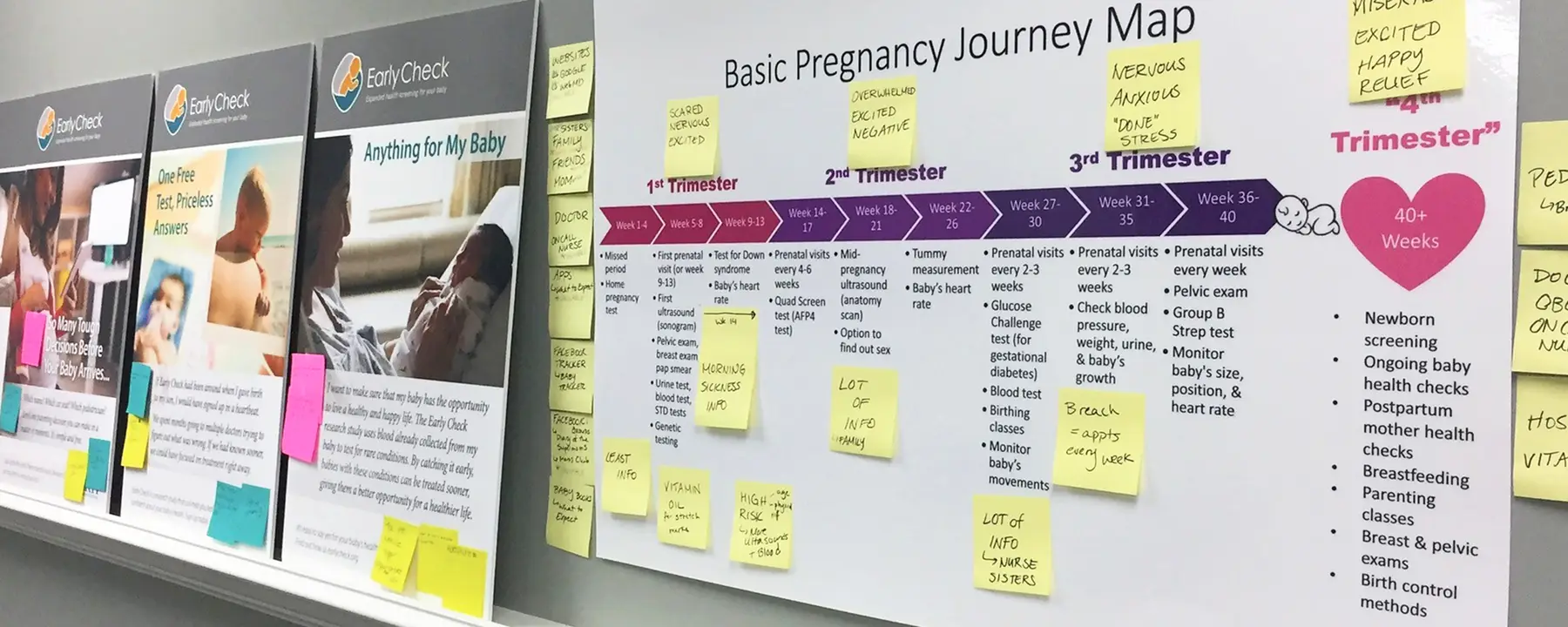Using data-driven strategies to inform evidence-based solutions
Data-Driven Communication Research & Solutions
Solutions that are data-driven and evidence-based begin with research to understand the intended audience—including what they think, feel, and do. Our toolbox of human-centered research methods, including the latest data analysis tools, enables us to connect with an audience and provide actionable results and recommendations for potential solutions.
RTI’s Communication Research Capabilities
Our communication research approach includes the following:
- Literature reviews and environmental scans
- Social media listening, recruitment, and surveillance
- Virtual and in-person focus groups and in-depth interviews
- Web-based surveys
- Primary and secondary qualitative and quantitative data analysis
- Audience research and segmentation
View More in Communication Science
Communication Research Project Highlights
Understanding Consumer and Provider Attitudes about Emergency Use Authorization Products
During national emergencies, such as during an infectious disease outbreak, the Food and Drug Administration (FDA) can authorize unapproved medical products using an Emergency Use Authorization (EUA). However, little is known about consumer and health care provider perceptions of products authorized under an EUA. In collaboration with FDA, RTI International conducted a scoping literature review to answer questions about consumer and health care provider attitudes toward and understanding of products approved under EUAs. In the second phase of the study, RTI will conduct a content analysis on promotional materials submitted to FDA to explore how EUAs are described and defined, how benefit and risk information is presented in the materials, and how materials for consumers and health care providers differ. Results of the content analysis could have implications for the types of limitations FDA sets on promotion of products authorized under EUAs.
Optimizing Flood Warning Information Sharing
With the expansion of digital connectivity and the proliferation of information at our fingertips, people can find themselves struggling to distill what they need to know, when they need to know it, and which information sources they can trust. RTI’s risk communication researchers and practitioners help clients and partners understand how information about flood warnings is disseminated. We begin by conducting formative research with identified audience segments, including virtual and in-person focus groups, to understand how the information gets from an established source like the National Weather Service through regional and local pathways, to the public. This process informs design-thinking workshops to develop effective flood warning communications.
INSPIRE: Comparing the Effectiveness of Behavioral Interventions
Opioids are often used to treat chronic pain, yet systematic reviews and a recent randomized clinical trial found that opioid therapy is not superior to non-opioid therapy and has greater risks. Nonpharmacological options are also needed for people living with pain. Funded by the Patient-Centered Outcomes Research Institute (PCORI), RTI collaborated with Duke University, the University of North Carolina at Chapel Hill, and Vanderbilt University Medical Center to design and implement a pragmatic clinical trial to compare the effectiveness of (1) shared decision-making versus (2) cognitive behavioral therapy and motivational interviewing for people with chronic pain on long-term opioids. The study measured the impact of the two programs on opioid dose, pain interference, and physical functioning outcomes. The study also engaged patients, clinicians, subject matter experts, and advocates to solicit feedback on planning, implementation, and dissemination. Study results are forthcoming and will guide clinicians, researchers, and policymakers as they seek to reduce opioid prescribing and improve management of chronic pain. The study team plans to share the results with people living with pain so they can make informed health decisions.


















